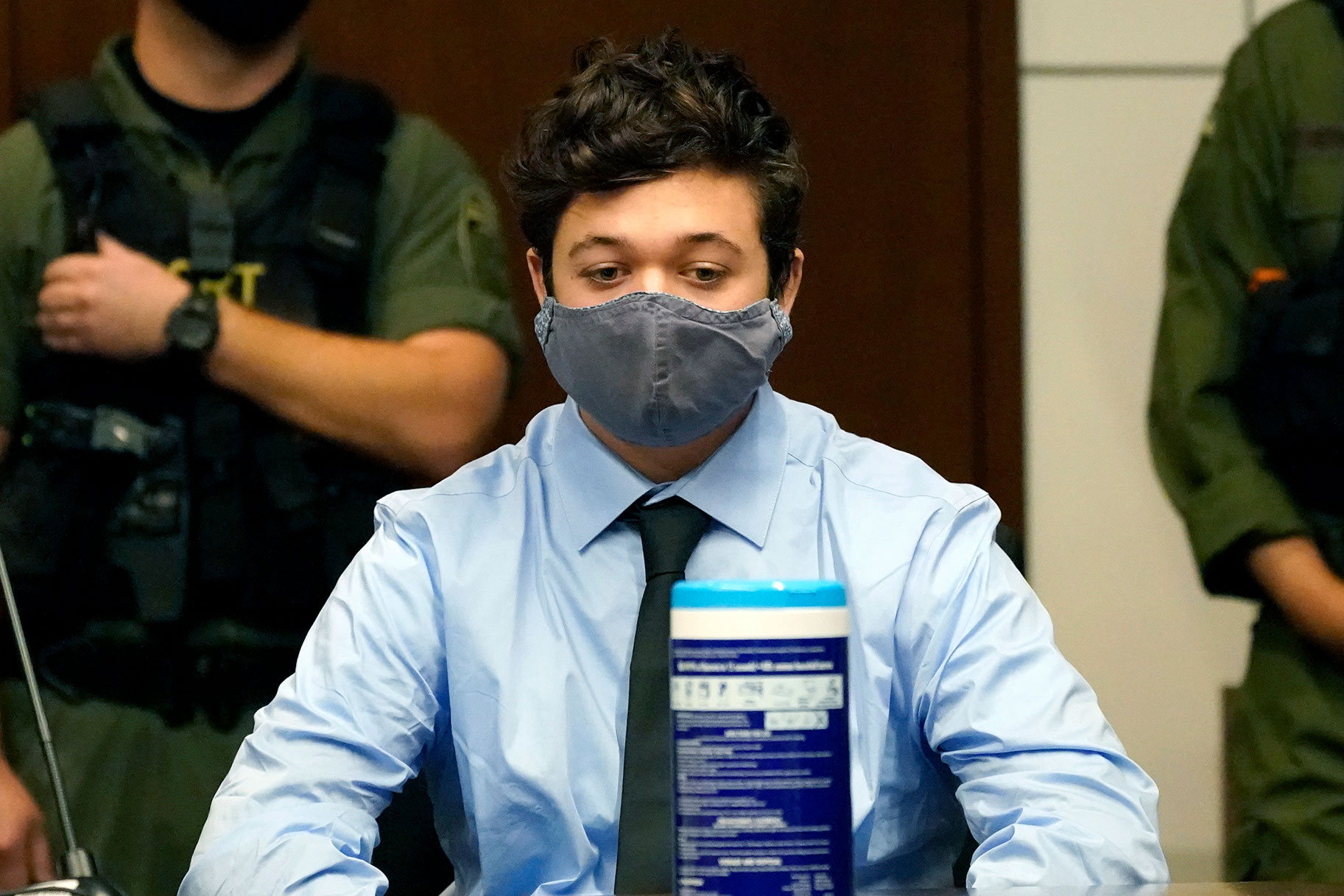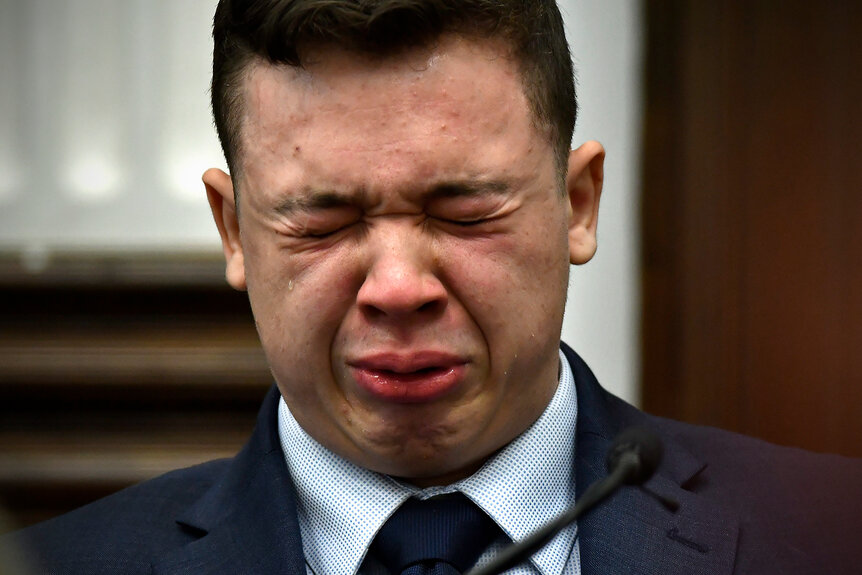Create a free profile to get unlimited access to exclusive videos, breaking news, sweepstakes, and more!
Why Was Kyle Rittenhouse's Gun Charge Dismissed Before Closing Remarks?
A gun charge was dismissed against Kyle Rittenhouse, who nonetheless still faces more serious charges for the shootings of Joseph Rosenbaum, Anthony Huber and Gaige Grosskreutz.

Before closing arguments in the Kyle Rittenhouse murder trial began on Monday, the presiding judge dropped a misdemeanor charge against the teen.
But why?
Judge Bruce Schroeder dropped the sixth charge — possession of a dangerous weapon by a person under 18 — against Rittenhouse on Monday morning. Rittenhouse still faces five felony charges and, if convicted on the most serious charge of first-degree intentional homicide, could face a mandatory sentence of life in prison.
Initially, it had looked like prosecutors’ easiest task at Rittenhouse’s murder trial would be convicting him of that much less significant charge.
After all, he was just 17 when he shot three people, killing two, with a semi-automatic rifle on the streets of Kenosha, Wisconsin, during a protest against police brutality in 2020. Prosecutors ultimately brought multiple charges against him, including first-degree intentional homicide, attempted homicide, reckless endangerment and the firearm possession count.
But Rittenhouse’s defense team dug up an exception to the prohibition on minors possessing dangerous weapons and Schroeder dismissed the count Monday — just hours before jurors began their deliberations.
Under Wisconsin law, anyone under 18 who possesses a dangerous weapon is guilty of a misdemeanor punishable by up to nine months behind bars. No one contested that Rittenhouse was 17 the night of the protest in August 2020, and bystander and surveillance video clearly shows him walking around with the rifle strapped to his chest before the shootings, which was the gun he used to shoot and kill Joseph Rosenbaum and Anthony Huber and wound Gaige Grosskreutz.
But Rittenhouse’s attorneys pointed out to the judge that a subsection of the Wisconsin law states the ban on minors possessing dangerous weapons applies to minors armed with rifles or shotguns, and only if those weapons are short-barreled.
Rittenhouse’s AR-15-style rifle was not short-barreled.
The language stems from a bill that then-Republican Gov. Tommy Thompson signed in 1991, when lawmakers across the country were trying to find ways to curb gang violence around that time. Kenosha defense attorney Michael Cicchini said the law was likely intended to prevent youths from carrying sawed-off shotguns.
“It’s very significant,” former federal prosecutor Phil Turner, who is not involved in the case, told the Associated Press of Schroeder’s decision to toss the charge. “It sounds like he’d be guilty of that and he’d get a conviction."
"You can at least assuage the public you’ve got something," he said of getting a conviction on the misdemeanor charge, "as opposed to coming away with absolutely nothing, which is a distinct possibility in this case.”
“This is actually likely to have pretty interesting implications in the state, and could ultimately mean that teenagers could walk around open carrying AR-15s in town and cops won't be able to do anything about it,” Kenosha News reporter Deneen Smith tweeted on Monday.
The prosecution noted that potential precedent in their closing statements.
“I think we can also agree that we shouldn’t have 17-year-olds running around our streets with AR-15s, because this is exactly what happens,” prosecutor Thomas Binger said, referencing the bloodshed allegedly caused by Rittenhouse.
Closing arguments are expected to take up to five hours, after which presiding Judge Bruce Schroeder will reduce the number of jurors from 18 to 12, NBC Chicago reports. His decision will be randomly determined by drawing names out of a tumbler.
Prosecutors presented testimony in their case over a span of about five days.The defense put witnesses on the stand for two and a half days last week — including Rittenhouse, who broke down sobbing as he talked about the moments leading up to the shooting that took the lives of two people and left one wounded.
“I didn’t do anything wrong," he said. "I defended myself.”
The defense rested its case Thursday.
During his closing remarks, defense attorney Mark Richards celebrated his client’s testimony last week and reiterated his opinion that Rittenhouse was not looking for trouble when he went to the unrest armed with a gun.
"When he came down here, are we to believe that he's working to clean up graffiti, not getting paid because he's here to look for trouble?” he said, CNN reports. “Is it all some master plan? That's ridiculous. He came down here, trying to help to see the damage. That's what he did.”
Richards, wrapped up his closing arguments by reiterating that his client had acted in self-defense, which is protected under Wisconsin law.
Prosecutors will have a chance to offer a rebuttal to Richards before Rittenhouse's case gets turned over to the jurors.
The Associated Press contributed to this report.
























